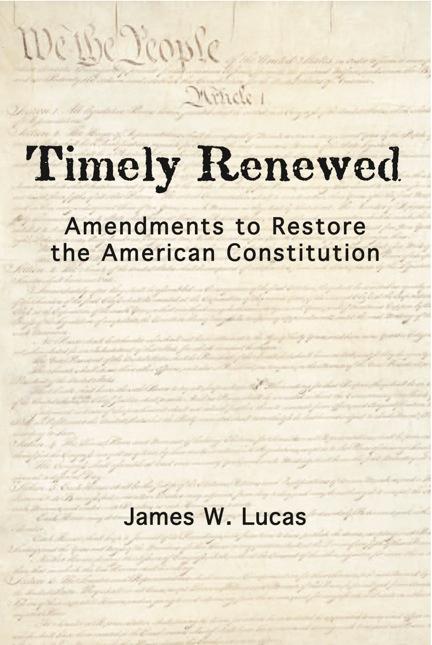The new short book Are We The People? shows how we can revive the amendment process so that major constitutional issues can be decided by the democratic method the Framers intended rather than by the fiat of an unelected and unaccountable judicidary. . . . → Read More: Are We The People? is now available – the answer to SCOTUSocracy
|
|||||
|
Even if the Supreme Court rules Obamacare unconstitutional, that will still leave in place all of the previous 75 years of Supreme Court decisions which have allowed the federal government to expand far beyond its original constitutional limits. In the 1930s, the Supreme Court overturned many New Deal expansions of federal power, only to have them all reversed as Roosevelt appointees eventually filled the Court. A Supreme Court decision against Obamacare must not be a cause for complacency in the war against the ever-expanidng power of the national government, including enacting amendments to restore the original constitutional limits on federal power. . . . → Read More: Obamacare: Winning the Battle but Losing the War? A constitutional amendment restoring the original meaning of the interstate commerce clause is the only sure way to reverse not only Obamacare but the rest of the federal regulatory leviathan. . . . → Read More: Obamacare in the Supreme Court – II Part of the attention Newt Gingrich has attracted recently, both good and bad, has focused on his proposals for reining in an activist federal judiciary. Some of the proposals include congressional legislation limiting the federal courts’ jurisdiction in certain areas, abolishing particularly out-of-control courts, presidential defiance of decisions he deems unconstitutional and calling judges before . . . → Read More: Newt, the Judges, and the Constitution The American Thinker has published as a blog item my review of President Obama’s so-called regulatory review (You call this regulatory reform?). Under the direction of Professor Cass Sunstein, President Obama’s former University of Chicago law school colleague, all federal regulatory bodies were to eliminate regulations which were unduly burdensome to small businesses. Private sector critics . . . → Read More: The Constitution and Real Federal Regulatory Reform Frustration on both the political left and right have led to calls for a new constitutional convention under Article V of the Constitution. However, such a convention would likely be dominated by politicians and law professors, who would be unlikely to propose amendments restoring the original Constitution, or remain within the limits as to subject matter which the States might include in their convention applications. . . . → Read More: Is an Article V Convention the Best Approach? By amending Article V of the Constitution to eliminate the convention requirement for state-initiated amendment proposals and by slightly lowering the ratification hurdles, we can restore control over the Constitution to the people and end the current federal monopoly over the meaning of our foundational document. . . . → Read More: Restoring the Constitution through the “Amendment Amendment” The proposed reform of Article V provides another route to bypass a recalcitrant Congress. This is a national referendum if two-thirds but not three fourths of the states have approved an amendment. . . . → Read More: But Won’t Congress Block Amendments Restoring Federalism? Of course, the “amendment amendment” would have to be added to the Constitution under the existing Article V procedures. If Congress can not be trusted to pass constitutional amendments limiting its governmental power, why would two-thirds of both houses approve a constitutional amendment which will end Congress’ de facto monopoly on initiating constitutional amendments? Here a . . . → Read More: Can the “Amendment Amendment” be Enacted?, or a Progressive-Tea Party alliance, are you kidding? |
|||||
|
Copyright © 2025 Timely Renewed - All Rights Reserved |
|||||



Professor Levinson and the “Imbecilic” Constitution: Speaking Liberty to Power
Professor Sanford Levinson’s recent New York Times op-ed on our “imbecilic” Constitution gets only one thing right – the amendment process is moribund. Professor Richard Epstein’s brilliant response to Levinson gets only one thing wrong – limited government will not be restored voluntarily by regular politicians no matter well schooled they are by Professor Epstein. We need a tool to overcome 80 plus years of Supreme Court decisions underlying the federal leviathan. That tool is a reformed amendment process enabling constitutional amendments to be initiated and enacted at the state level without having to go through either Congress or the dangerous process of a second constitutional convention. . . . → Read More: Professor Levinson and the “Imbecilic” Constitution: Speaking Liberty to Power